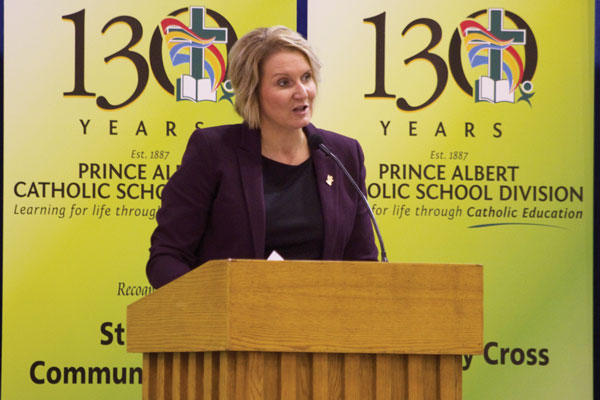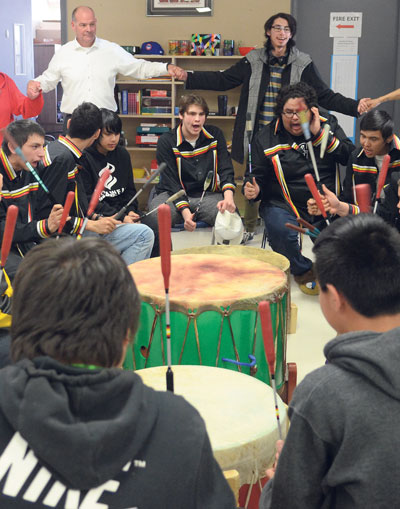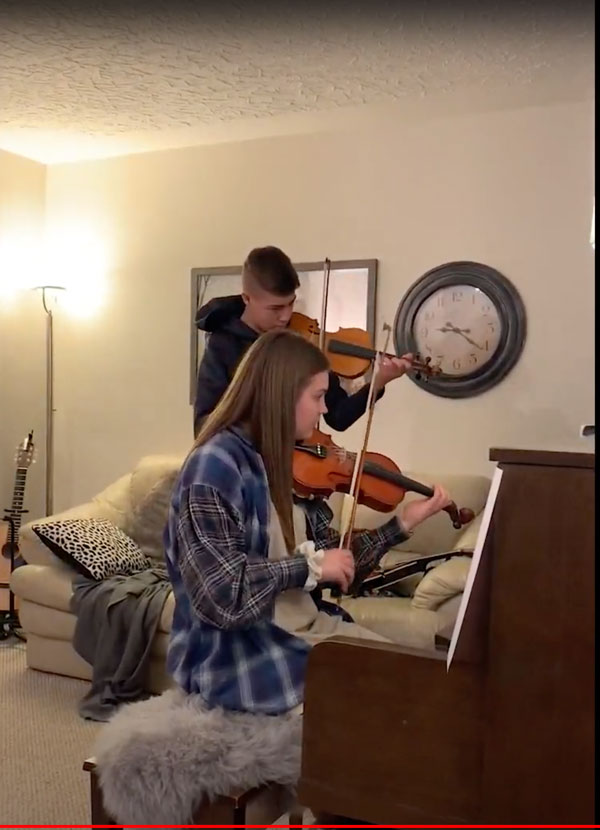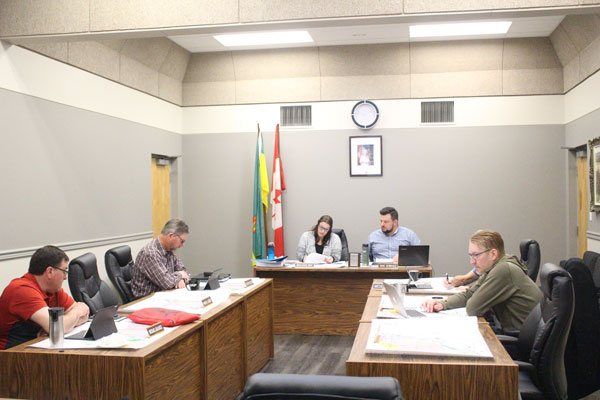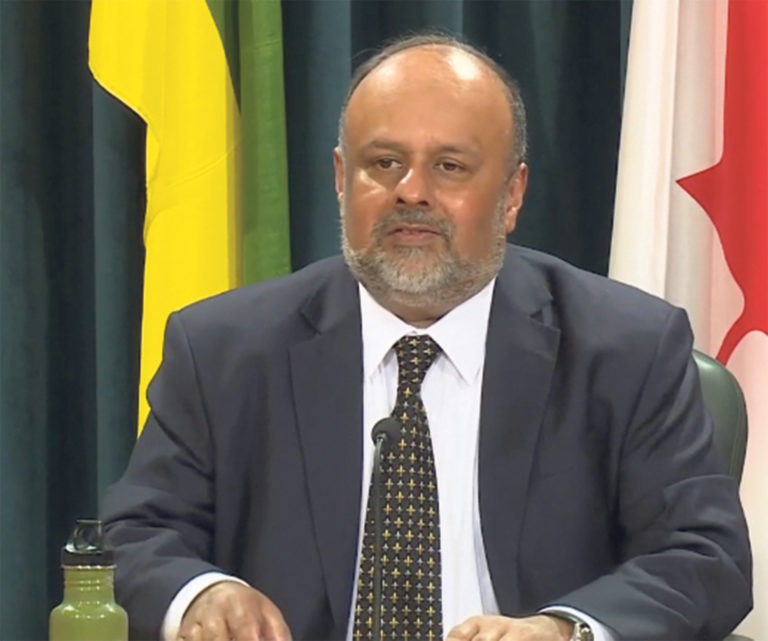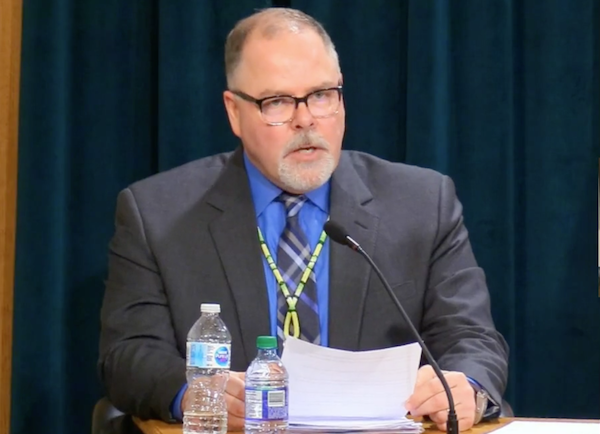Schools will not be returning in 2019-2020 and supplemental learning will continue for the rest of the school year, the Ministry of Education said Thursday morning. Under the direction of Chief Medical Health Officer Saqib Shahab, classes will not take place until at least September.
“The Response Plan Team of the Government of Saskatchewan will continue to collaborate with Saskatchewan’s Chief Medical Health Officer to determine a safe return. So I thank you all for your patience as we navigate the future of education in Saskatchewan,” Minister of Education and Deputy Premier Gord Wyant said in a media teleconference Thursday.
Wyant thanked the team and the members from the Saskatchewan School Boards Association (SSBA), the Saskatchewan Teacher’s Federation and other partners from the education sector. Wyant said that the team is working to analyze scenarios should classes be able to commence or not in September.
“They are looking at all different possibilities, I can tell you they are working very hard and working very well together to find the best path forward for the delivery of education in September. We will continue to rely on the advice of the Chief Medical Health Officer but the team is working on all different kinds of scenarios. I can also tell you that they are collaborating with our education partners in other provinces to see what they are doing so that we can have the best possible response,” Wyant said.
The Response Planning Team is working with education sector partners to begin work on what in-class learning may look like this fall, although the timelines will depend on the safety of everyone in Saskatchewan schools, including students, teachers and school staff.
“We are certainly hoping that school can re-commence in September. That would be our goal but of course, based on the advice of the Chief Medical Health Officer if that is not a possibility than we will have to continue what we are doing. But I can tell you this that in terms of the Supplementary Learning which is happening now we are continuing to work on Supplementary Learning opportunities so that in the event that school can’t commence in September we will have a robust plan for delivery of public education,” Wyant said.
Lorel Trumier, the director of education for the Prince Albert Catholic School Division, said that they became aware of the cancelation ahead of the announcement. She explained that she was not surprised by the announcement because of the current outbreaks in the north and far north. Trumier said that the division was in good standing to continue with Supplemental Learning.
“We have 90 per cent of our students opted in to engage. So we are feeling really good that we will be able to continue this work. I know that our teachers are working each day to get better at this Supplemental Distance Learning that we are providing,” Trumier said.
As for September, Trumier said that they are prepared for any scenario that could develop.
“We are going to turn our attention to what does the fall look like and we are going to be ready for whatever is required. If our students are going to be doing a distance learning program we are going to be ready for that. If our students are going to return to school we are going to be ready for that. We are also going to engage our families in surveying them if they want to choose one of the different models based on what is appropriate from the Public Health order,” Trumier said.
Trumier explained that they will work with families in the division based on their comfort level when September comes.
“One of the things that we are trying to structure is there might be some students or families who are reluctant to come to school in September and we also work with them through a distance learning approach until they feel comfortable to come back to the school,”
Coming back to school does not need to be an all or nothing approach, Trumier said. They have already begun to plan a survey for the families in the division.
“Not only are we going to survey our families right away about how they are feeling and what they are hoping for and we are going to look for opportunities to enhance what we are doing for them, but we also want to make sure that they know that we are going to support them and we are going to respect their decision when it comes,” she said.
There is also planning under way for online registration on the division’s website. The hope is to have it ready by early next week.
Saskatchewan Rivers School Division director of education Robert Bratvold was also not surprised by the announcement
“We are well on our way with the supplemental learning journey and teachers and support staff are doing fantastic work,” Bratvold explained.
He said the division is in a good place to make the adjustment with student learning as the focus.
“One of the significant challenges I see is the potential for students to lose interest/engagement now that the weather is warming and the resumption of classes is not a possibility. We will take this challenge on together with students, staff and families, as we do with all of our challenges,” he said.
Wyant said that for students in Grade 12 who want to improve their grades, supplemental learning is available as many students were concerned about that.
“I can also tell you that there has been conversations between our sector and post-secondary in terms of admittance of Grade 12 students to university in these circumstances. So there are ongoing conversations,” Wyant said.
Wyant emphasized that they are going to continue to encourage learning and teaching until the end of June and the school divisions will determine what is in the best interest of the students.
“We are leaving this up to the educational professionals,” Wyant said.
Wyant explained that if teachers are having challenges with Supplemental Learning to reach out to their division or principal. The Response Planning Team and administration in divisions are in constant contact.
“There is no playboook for this so we are doing the best we can,” he said.
Wyant has confidence in all parts of the sector to work together to get proper resources.
“It’s new for students, it’s new for teachers and we have to recognize that and that we are providing the right support,” he said.
There are often challenges around delivery of supplemental learning because of socioeconomic or technological and rural connectivity. Wyant explained that the Ministry is aware of these challenges. He was encouraged by partnerships in Saskatoon with SaskTel and other innovations.
“We need to know where those are, as the challenges come up we try to address them but as I said there is no playbook for this and really what we need to end up doing is seeing what those challenges are and doing our best to address them.”
Wyant said that the Ministry is aware that some divisions are using paper packages to address these issues.
“We know that there is a lot of different opportunities but online learning is a key and we just need to make sure that it is being provided and to the extent that we are having some challenges, we just need to know that we are still providing those resources,” Wyant said.
“We are in contact between the Ministry of Education and SaskTel about this to ensure that there is appropriate bandwidth because we know that throughout the province there is a real demand of bandwidth given the fact that a lot of people are working from home now,” he said.
For those students graduating this year, school divisions are working with graduates and staff to consider virtual graduation ceremonies and possible postponements as well, as public health orders remain which prevent more than 10 people from gathering together.
“We know that graduation ceremonies and celebrations are important to so many families, and we extend a warm congratulations to all of Saskatchewan’s Grade 12 students and we wish them the very best in their futures,” Wyant said in the province’s release.

